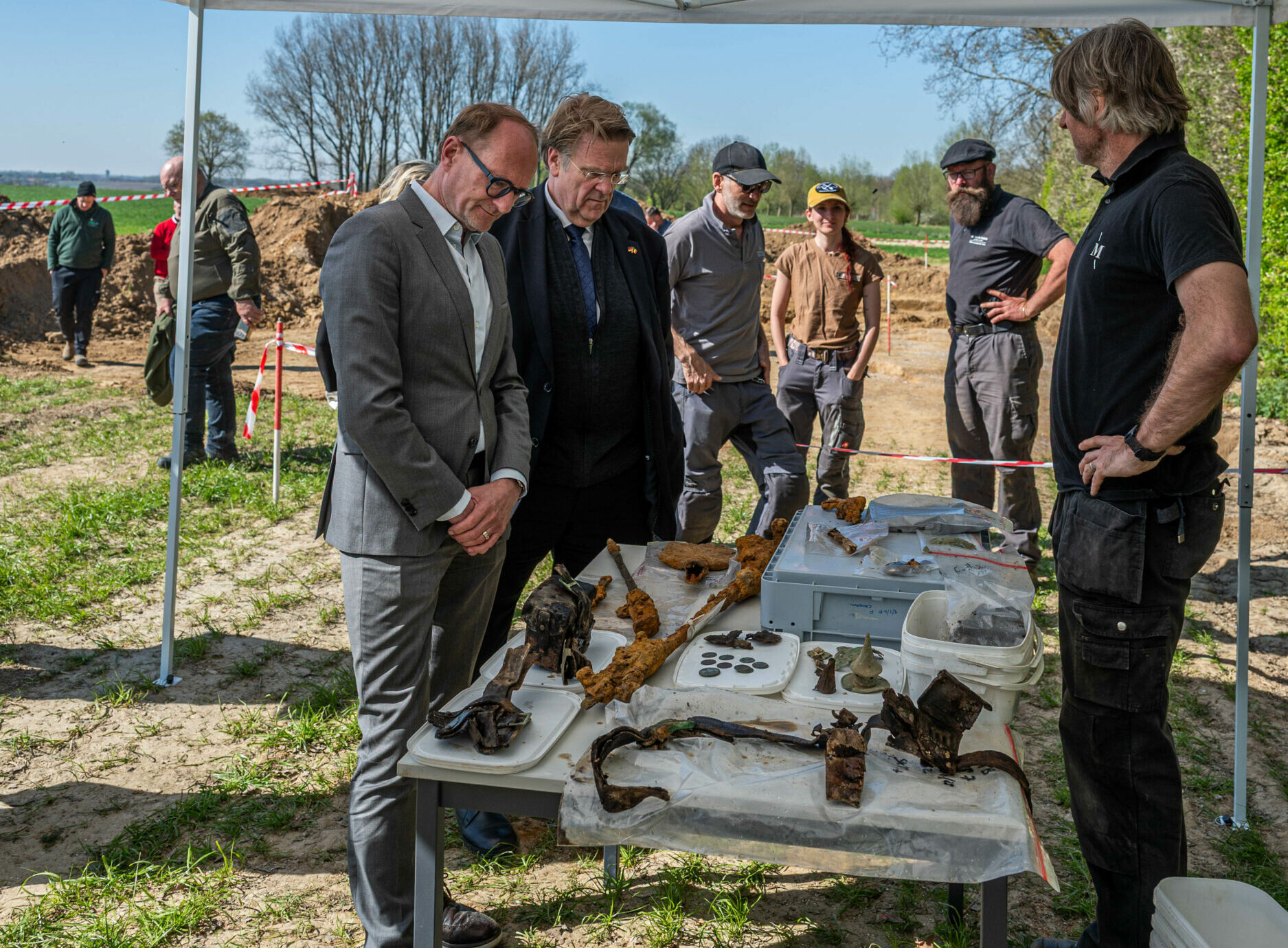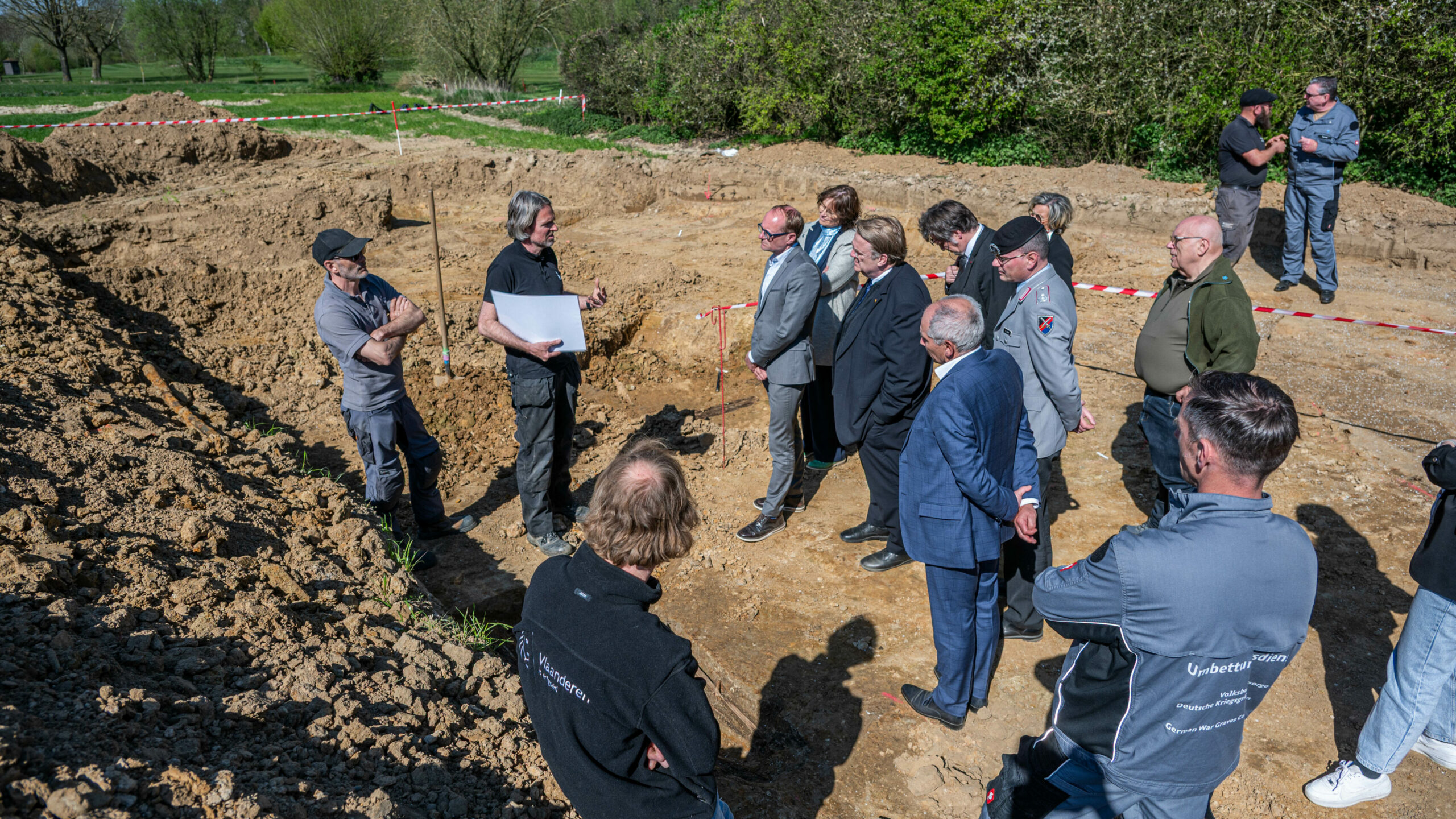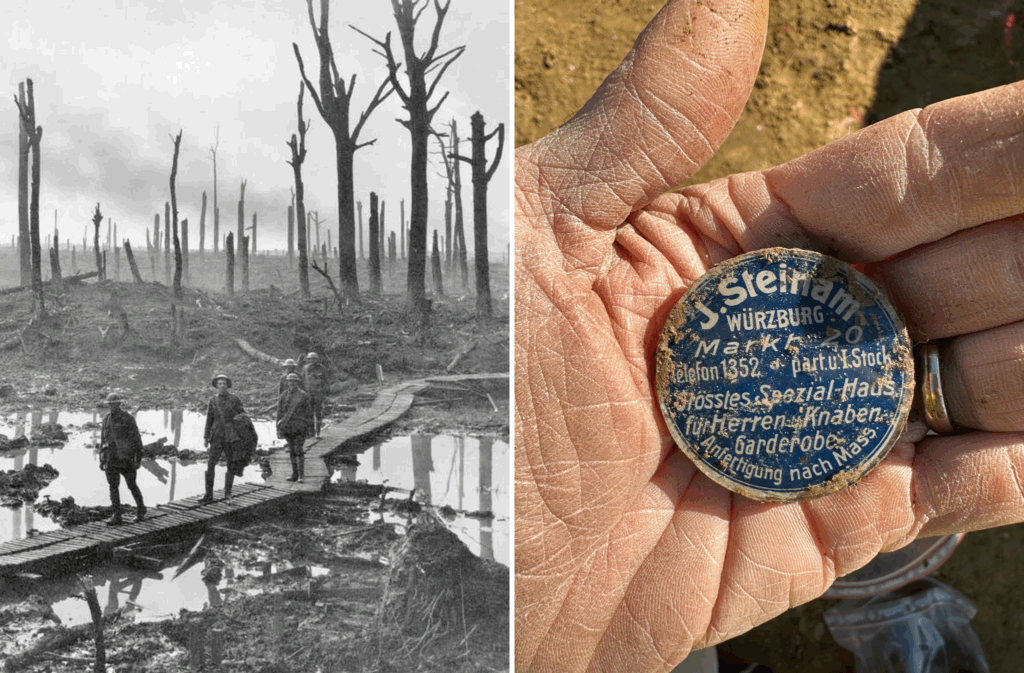The bloody battlefields of Belgium have unearthed the remains of another 22 soldiers from the First World War. A joint country project organised their exhumation this month in complete silence.
Hidden for over 100 years in the ground, Belgian archaeological researchers discovered the remains while carrying out preliminary excavations in 2022 near the Palingbeek Golf Club in Ypres.
Unsurprisingly, bunkers, trenches, railway lines and human remains of both Allied and German soldiers were uncovered. The site is located right on the front line of the First World War. Between 1914 and 1917, Allied and German troops dug themselves into the infamous trenches, just a few hundred metres apart.
"At Palingbeek, we found the badly mutilated remains of mainly Germans. It seems that in the chaos of the fighting, there was little or no time to bury them. We are proud that these young people will now, after 100 years, be given a dignified final resting place," says Bert Heyvaert of Archeologie Monument Vandekerkckhove.
After contacting the Britain's Commonwealth War Graves Commission (CWGC), Germany's Volksbund Deutsche Kriegsgräberfürsorge (VDK) and the French Direction de la mémoire, de la culture et des archives (DMCA), a joint excavation project was launched between the participating countries.
Over the past 10 days, international experts have been quietly excavating the remains of the 22 soldiers in the grounds along the Palingbeek golf club in Ypres. All the victims were recovered, and dozens of personal and military items were also excavated.

Flemish Minister Ben Weyts and German Ambassador to Belgium inspect the findings, 7 April 2025 in Ypres. Credit: Ben Weyts
One of the first challenges has been identifying the nationalities of the soldiers. According to the archaeologists, they are believed to be mainly German because of some of the items found around the remains. However, French and Commonwealth soldiers are also likely to have been found.
The location of the discovery is in the area where one of the frontlines to the south-west of the city is. Ypres bore witness to five different battles between 1914-1918.
It was a strategic point where the Allies were able to stop the German invasion in 1914, with the two sides bitterly contesting the territory to the west and southwest of the city. Residents of the city were forced to evacuate during the Second Battle of Ypres in 1915, with the city left in ruins but rebuilt after the war.
Exhumed in silence
The excavations were a delicate archaeological operation, led by Belgian archaeologists from Monument Vandekerckhove and supervised by the regional Flemish Agency for Immovable Heritage. This international collaboration with experts from different countries is rare and would not have been possible without the coordinating role of the Flemish Region.
The regional Flemish Minister for Heritage Ben Weyts (N-VA) joined the German Ambassador to Belgium, Martin Kotthaus, and Mayor of Ypres Katrien Desomer in a discreet visit to the archaeological site on 7 April, where at the time excavations were in full swing. The visit was held in silence so as not to disturb the archaeological site.

Flemish Minister Ben Weyts, German Ambassador Martin Kotthaus, Mayor of Ypres Katrien Desomer are explained the historical context by the experts before heading to the excavation site. Credit: Ben Weyts
"These excavations contribute to historical awareness and the commemoration of the fallen, and remind us of the many thousands of unknown soldiers of the First World War who were never identified or are still missing," said Katrien Desomer, Mayor of Ypres.
"They not only provide insight into the past, but also give relatives the opportunity to commemorate their loved ones and visit their final resting place. The landscape in Ypres and the Westhoek is now more than ever the last witness to the First World War," Desomer added.
It is believed that there are still thousands of soldiers buried in the ground, a testament to the infamous conditions of the trenches on the Ypres Salient.
"Research into the archaeology of the First World War can be quite intense, with traces of fierce fighting and poor living conditions just below the surface. Hundreds of thousands of fallen soldiers were also left behind on the battlefield," Archeologie Monument Vandekerkckhove's Heyvaert explained.

